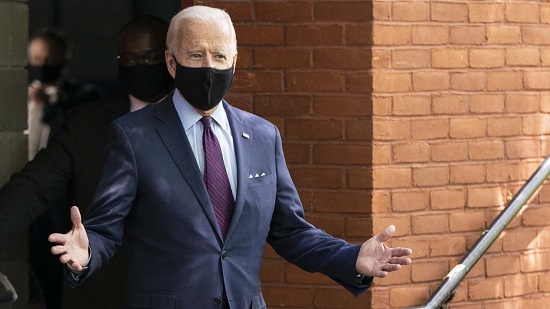This post has already been read 1576 times!
US President Joe Biden’s plans to spend nearly $5 trillion to change the world’s largest economy advanced in the House of Representatives on Tuesday, after Democratic leaders reached an agreement with centrist lawmakers to end a dispute threatening the bills.
Biden and his Democratic allies controlling the chamber are pushing for passage of both a $1.2 trillion infrastructure overhaul and a bill costing $3.5 trillion over 10 years that would pay for improvements to education, health care and climate change resiliency.
The dispute erupted when centrist Democrats in the House said the infrastructure bill, which the Senate already approved, must be voted on first.
On Tuesday, those lawmakers backed a compromise resolution that allowed both bills to advance, while guaranteeing a date to vote on the infrastructure bill near the end of September.
“Today the House of Representatives has taken significant steps toward making historic investment that’s going to transform America, cut taxes for working families and position the American economy for… long-term growth,” Biden said following the vote.
While some Senate Republicans voted for the infrastructure bill, they have shown no support for the larger budget measure.
With Democrats controlling the Senate by a single vote and the House by just a handful, they must reach near-unanimity to pass legislation.
The compromise House resolution allows for lawmakers to begin working with the Senate on details of the $3.5 trillion bill whose text they hope to unveil by September 15.
It also specifies that the House will vote on the infrastructure bill by September 27.
“I am committing to pass the bipartisan infrastructure bill by September 27. I do so with a commitment to rally House Democratic support for its passage,” House Speaker Nancy Pelosi said in a statement.
In the Senate, Democrats plan to use the reconciliation tactic to prevent Republicans from blocking the proposal, but two of their lawmakers have already said they won’t vote for the bill unless its price is reduced.
Final votes on the measures are not expected until next month or in the months thereafter.
The infrastructure measure includes $550 billion in new spending and is aimed at revitalizing and expanding the nation’s roads, railways, bridges and broadband access.
The $3.5 trillion measure is supported by Democratic leaders and its progressive faction, and includes funding for climate measures, infrastructure investments left out of the other bill, residency status for millions of migrant workers and two years of paid tuition at public universities.



